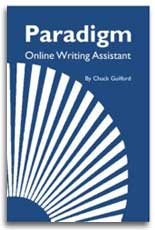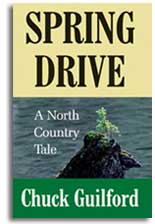Foreshadowing and Withholding Information
Experienced storytellers, whether professional writers or old-timers around a pot-bellied stove, know suspense keeps attention levels high. Creating and controlling anticipation, while never simple, depends on a few basic concepts. As a writer, you create expectations in your readers. Then you can satisfy those expectations, in which case the suspense disappears, or delay satisfaction until the last possible moment, thereby intensifying and prolonging the suspense.
It's the atmosphere of the weeks before Christmas. Television, newspapers, schools, friends, and relatives all create an expectation that something important is about to happen—a holiday, presents, festivities, celebration. Along with the expectation comes uncertainty. Will grandma like the present I bought her? Will I get everything I asked for? Will it snow?
Creating and controlling suspense, while never simple, becomes easier if you remember a few basic concepts.
This air of anticipation colored with uncertainty is the essence of suspense. To create suspense, you hint at, but hide, what will come. Foreshadowing is the hinting. Withholding Information is the hiding.
Who hasn't seen this scene or some variation on television? The Simpson family is about to go camping in the mountains, but at the last minute Homer can't fit all the equipment and the dog into the family station wagon. While he goes inside to tell Marge, Bart experiments with a new packing arrangement, in the process removing the spare tire and leaning it against the garage wall. When Marge comes out, she sees some space left and slips in the few remaining items. "Just needed a mother's know-how,"' she says as they hop in and take off, the dog playfully hanging its head out the window. Then, as the car pulls away, we get a quick shot of the spare tire leaning against the garage wall.
Fortunately, not all foreshadowing is this obvious and corny, but even when it is, it often works. Every time the car goes around a curve or over a rocky road, the camera zooms in on a tire.
So much for the foreshadowing. Where's the withholding? Don't we know the family will get a flat tire at some crucial point? Probably so, although writers often set up false leads along with good ones, making readers guess which are important. And even in a situation like the one above, several unanswered questions remain. How will it happen? When and where will it happen?




